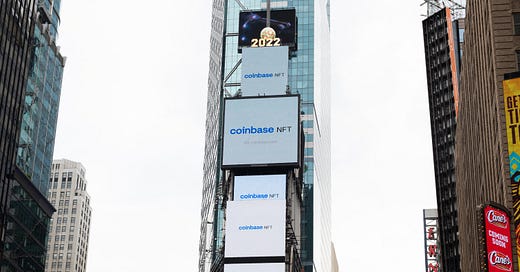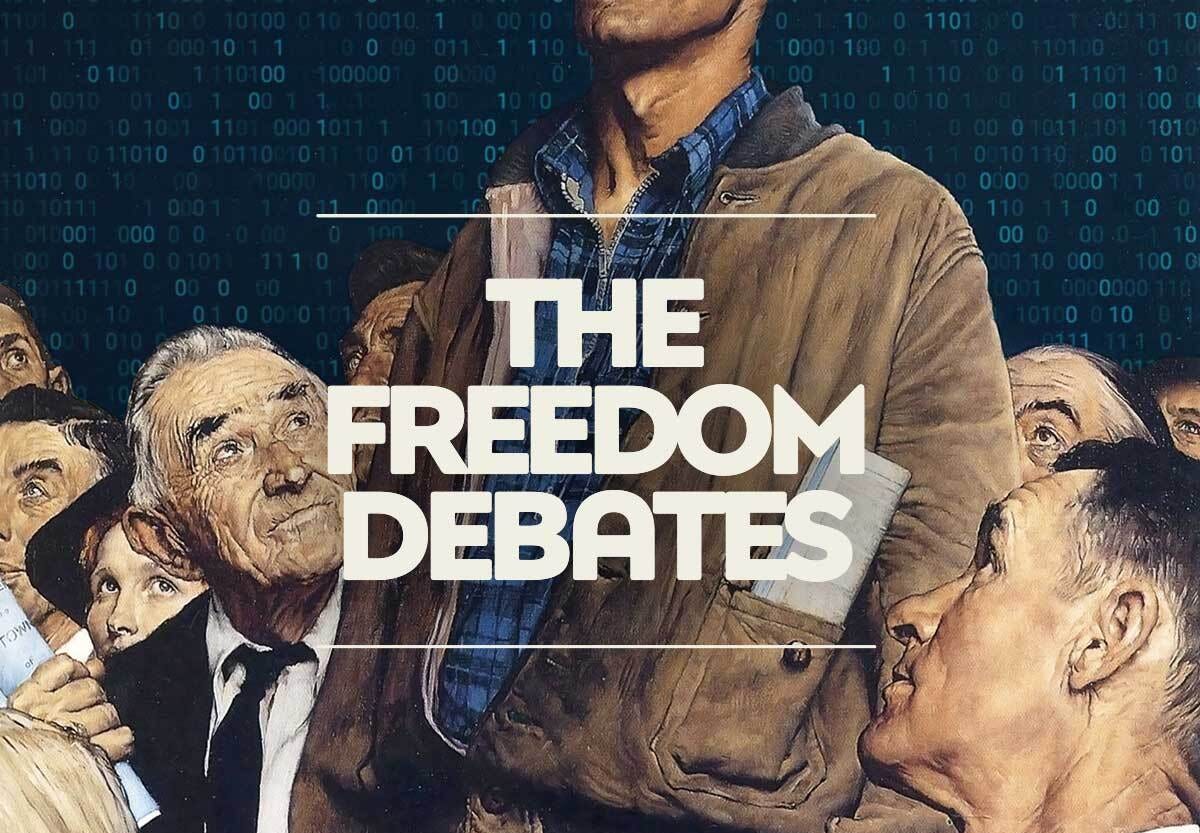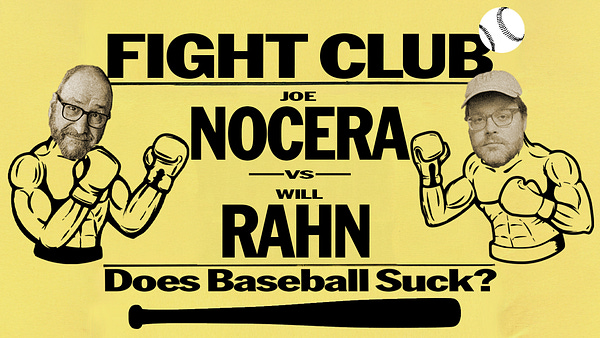
If you watched the Super Bowl this year, it was hard not to notice that cryptocurrency had fully arrived. Even Larry David was hawking crypto.
But over the past several weeks, the crypto markets, like other markets, have been melting down. Some coins have completely imploded. Some crypto banks have shut their digital doors, refusing to give customers access to their money. And companies like Coinbase are laying off workers. Crypto winter has arrived.
Today: a debate. Is crypto really the future of money? And is this blip just a normal hiccup in an otherwise exciting, transformational technological advancement? Or was crypto always more hype than reality?
Anthony Pompliano is a crypto believer. He’s an entrepreneur and investor and a former lead at Facebook. He's also the host of the Pomp podcast and the writer of a crypto newsletter called Off the Chain.
Michael Green is a major crypto skeptic. He has been an investor for more than 30 years. He recently joined Simplify, where he's introducing new innovations in ETFs. He's previously, among other jobs, been at Thiel Macro, where he managed the personal capital of Peter Thiel.














Crypto might be useful in some unique, tumultuous circumstances, such as living in a sanctioned or failed state where the official economy barely functions. (Even in such places, you'd be surprised to see that the cell phone network still works, and cheap Chinese Android phones are a dime a dozen.) But that's not enough to overhaul the whole financial system.
From Bari's questions as moderator, I think she shares my crypto-agnosticism if not outright skepticism.
Being a cryptoskeptic to being with, after listening to this podcast I'm still with Mike. The questions Bari brought to the table were excellent but with one or two key questions of mine missing.
Pomp said crypto will get rid of the elites. Crypto is like every other new investment vehicle; the slobs (you and me) get in on the ground floor but after some evolution weeds a number out, they become the elites that count on you participating but NOT being successful. So, its nothing new in those regards.
Question 1: What about safety of my savings? If I deposit my meager savings in a bank and it goes under or gets robbed, then I know my government will protect me and my money is not lost. A run on the bank still protects me.
However, with crypto, if it gets stolen, the cryptovault goes bankrupt or out of business, or there is a run on the wallet company, then I lose everything. We can see this happens all the time! Maybe in the future it won't and maybe there will be insurance, but right now, its a wild west out there with NO US Marshalls hunting down bank robbers.. well, successfully. When hostile government backed entities (North Korea's hackers and Russia's Internet Research Agency) are out there to get your money with no recourse, why would I want to risk it?
Question 2: Like any investment vehicle it can be manipulated? What protects us from that? Nothing. The very fact that it exists outside government control or central supervision makes it ripe for evil actors. Let us say there was a farm where everyone can plant, grow, and harvest. Evil Bob decides to wait for you to plant and grow. But, without contributing anything he comes in a day before you plan to harvest with his buddies and their trucks, and they take everything.
Ridiculous? What about the stock manipulation of GameStop? You want that for your currency?
Furthermore, the fact that its not based on a country's debt, performance, monetary policy (etc.) and has NO governance , leaves it completely open to random market forces and the whims of bad actors.
As much as you want to tout the ability for evil governments to be unable to track or control transactions, Pomp completely ignored that this also makes it ripe for evil governments and terrorist organizations to exploit it. One of our biggest IT threats, ransomware, is paid in Bitcoin. I propose that ransomware has become an even bigger threat BECAUSE of Bitcoin.
The final thing I want to add was kudos to Mike's last couple of points. Pomp and other supporters of the crypto world appear to either live in an extreme fantasy world or have ulterior motives for you to get in and try to buy thus driving the price up.
The ONLY actual benefit I see is that its a way for countries like the Ukraine to receive funding; in an unfortunate situation. However, I propose that without Bitcoin, the world would find another way.
Lack of security of my money, high volatility, no oversight, easy manipulation, ideal vehicle for criminal funding... you want THAT for your currency? No way.